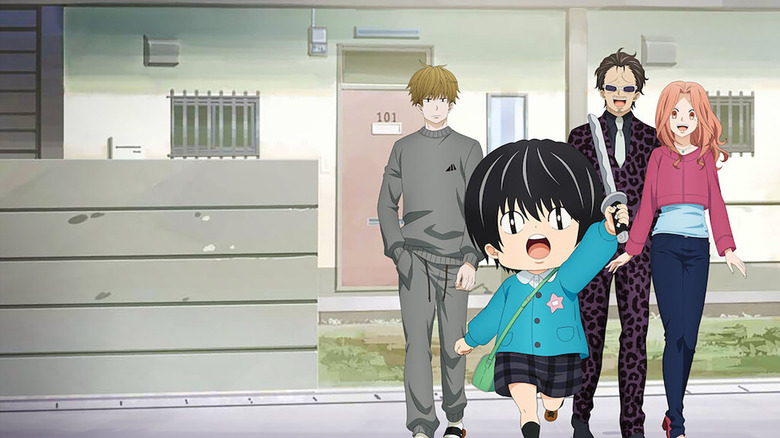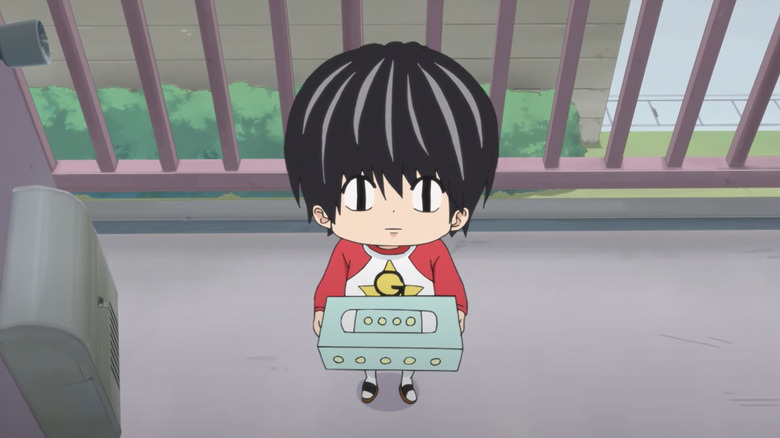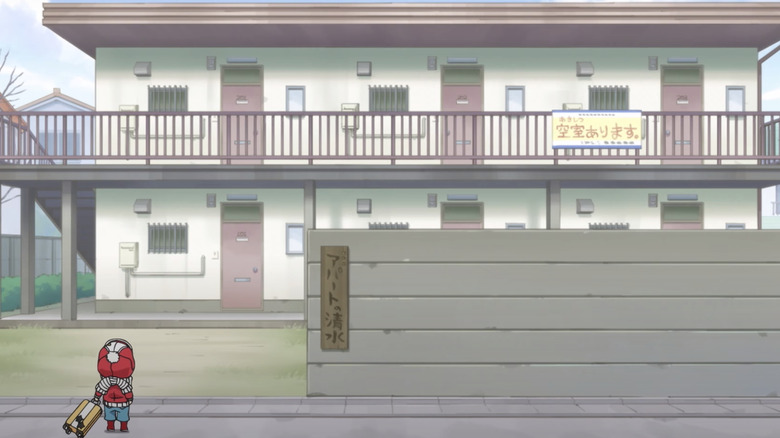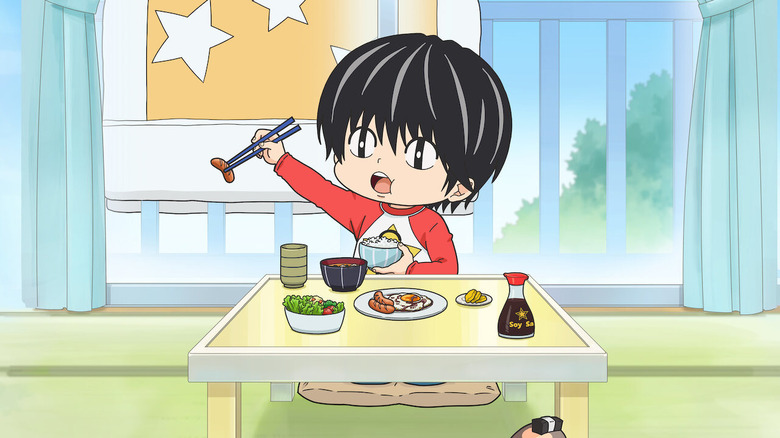The Daily Stream: Kotaro Lives Alone Is An Endearing Gut-Punch That Treats Children Like Humans
(Welcome to The Daily Stream, an ongoing series in which the /Film team shares what they've been watching, why it's worth checking out, and where you can stream it.)
The Series: "Kotaro Lives Alone"
Where You Can Stream It: Netflix
The Pitch: Kotaro Satо̄ is a 4-year old boy who moves into the apartment next door to Shin Karino, an unsuccessful manga artist. Kotaro moves in on his own, seemingly without any parents. The adults in the apartment building all take on guidance roles in Kotaro's life, with the polite albeit guarded little boy frequently showering his new friends with odd gifts like boxes of tissues. It's a familiar trope in the anime world to see young children and teenagers living independent lives, but "Kotaro Lives Alone" subverts the trope by balancing the laughs of a child wise beyond his years with the harsh realities of what would lead a toddler into a life of fierce sovereignty and the vocabulary of a grown, feudal lord. Kotaro is guarded about his life before moving into the apartment complex, but with every episode, we learn more about how Kotaro wound up at the apartment, what events have informed his peculiar behaviors, and how the adults in his life have all become better having met him.
Why it's essential viewing
Based on the somewhat silly premise, "Kotaro Lives Alone" seems like your run-of-the-mill slice of life anime, and for a lot of the show, it is. Kotaro goes to school, visits the bathhouse and gets soap in his eyes, goes grocery shopping, watches his favorite show, "Tonosaman," and makes friends wherever he goes. He's surrounded by eccentric neighbors who all need a bit of a push to take on the responsibilities of adulthood, and the episodes are filled with moral messages like what it takes to be a good friend, the impact of random acts of kindness, being responsible for our own behavior, and having empathy for those different than us. It's a cute show filled with light-hearted moments and laughs, but every so often, will absolutely knock the wind out of you with its fearless tackling of child abuse, neglect, and abandonment.
It seems like an adorable quirk that Kotaro thought boxes of high-quality tissues would be the best kind of gift to give to his new neighbors, until they realize after watching a "Dateline"-style television program that many starving children consume tissues as a means to stave off hunger. Kotaro's aversion to having his picture taken seems like an adorable insecurity — until we learn that his abusive father with a restraining order showed up to harass his former classroom (and possibly kidnap him) after seeing his photo on the school's website. Watch this cute anime, they said. It'll be a heartwarming time, they said. OKAY, THEN WHY AM I CRYING?!
'It never occurred to me that me being born was a good thing'
The more the realities of Kotaro's behaviors are revealed, the more hyper-aware the audience becomes to his quirks. His adorably impetuous behavior suddenly reads like a warning sign, and the adults in Kotaro's life develop a silent understanding that they must keep him protected at all costs, and serve as the found family the boy so desperately needs ...even if he thinks he's fine on his own. While the show has a cheerful demeanor and plenty of laughs, its heart is with Kotaro's growth out of his abusive home. He brings out the best in everyone he meets, whether it be his slovenly neighbors heading nowhere fast, or his selfish classmates who need to learn to be kinder to their nannies. At the same time, Kotaro has a lot to learn about life, and this provides some of the deepest moments in the show.
In one particular instance, the apartment residents find out that it's Kotaro's birthday and plan to throw him a big party. Kotaro doesn't fully understand why they would want to celebrate him, because he thought birthdays were nothing more than blowing out candles and eating cake. When they explain to him that a birthday is a way to celebrate the day you were born, he replies, "It never occurred to me that me being born was a good thing." His delivery is not one to elicit pity, it's a genuine realization presented in a matter-of-fact way. Kotaro genuinely never learned that his birthday is a day worth celebrating. Cue the waterworks once again.
Netflix made the show as accessible as possible
While it's always recommended that anime is best enjoyed with subtitles and the cast of original voice-over artists, Netflix put in some serious work for the English dub of "Kotaro Lives Alone." Cherami Leigh ("The Walking Dead: The Final Season," "Fire Emblem: The Three Houses," "Cyberpunk 2077") delivers a phenomenal performance as the titular toddler, Michael Sinterniklaas ("Teenage Mutant Ninja Turtles," "The Venture Bros.," "Your Name") gives a grounded performance as Shin Karino, Stephanie Sheh ("Naruto," "DC Super Hero Girls," "Sailor Moon" brings her Usagi/Sailor Moon best as Mizuki Akitomo, and Kayleigh McKee ("JoJo's Bizarre Adventure," "The Strongest Sage with the Weakest Crest," "Sasaki to Miyano") breathes fresh life into the complicated character, Isamu Tamaru.
While "Kotaro Lives Alone" deals with some understandably serious topics, the show never feels like a "very special episode" or emotional manipulation. The trauma explored in this series is a part of their world, but the show never feels too emotionally bleak to handle. It's a perfect balance of the highs and lows of life, but shown through the eyes of a little boy learning what it all means, and the adults trying to make sense of his experiences. "Kotaro Lives Alone" recognizes the little boy as a full human being, and allows him the space to be so much more than a stock character or a caricature of a child. The end of the season feels like a series finale so it's unlikely that we'll see a season 2, but given the show's popularity, Netflix may give us the gift of more "Kotaro Lives Alone."



